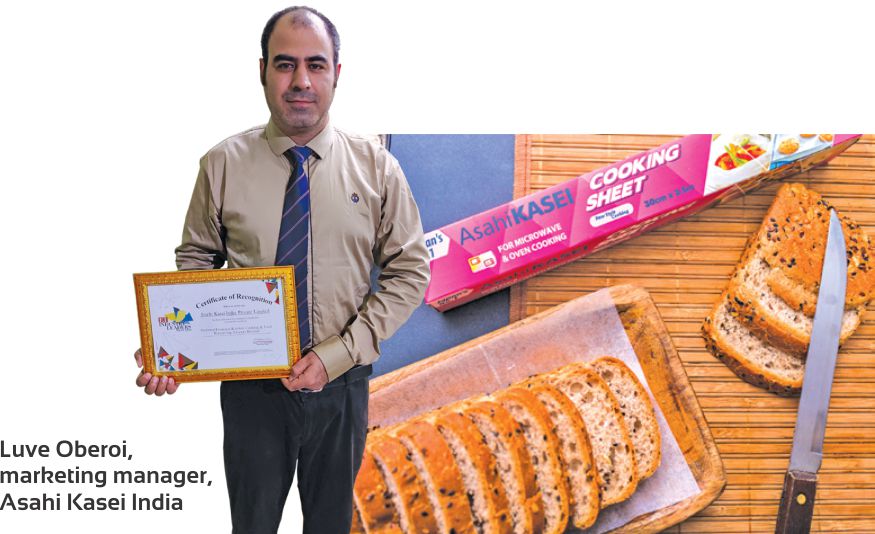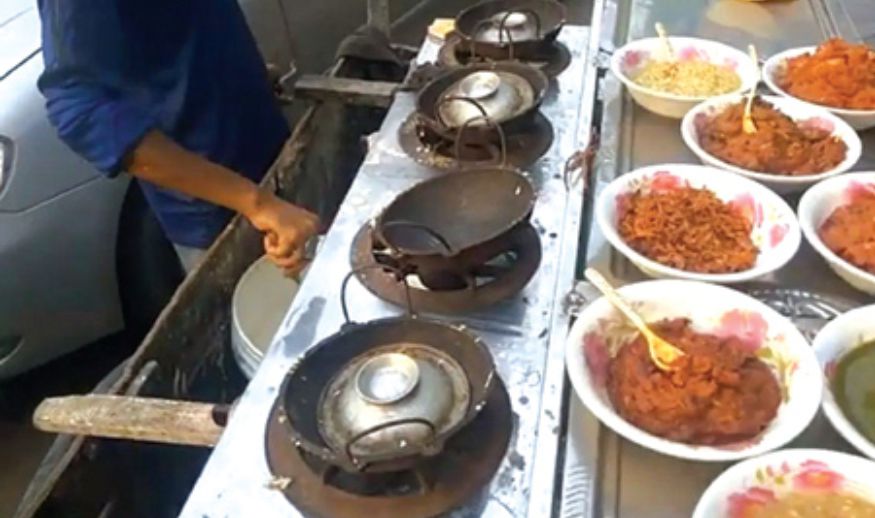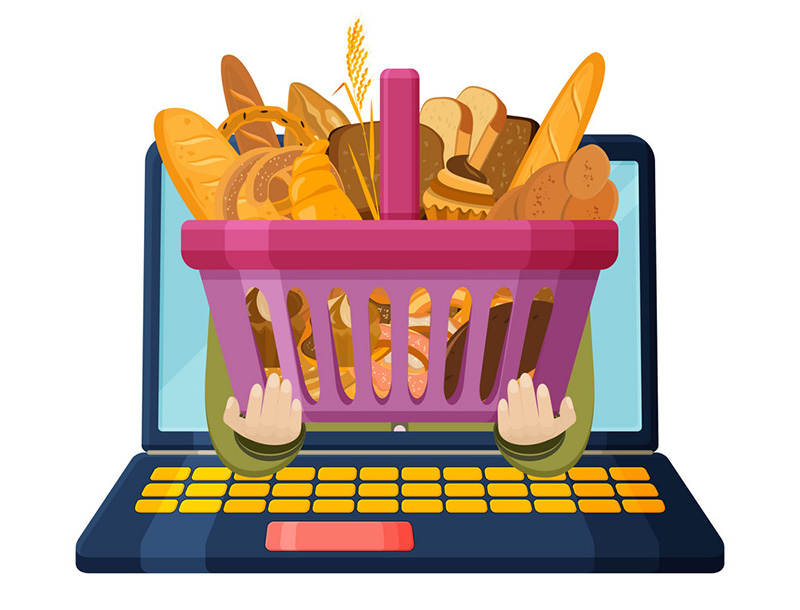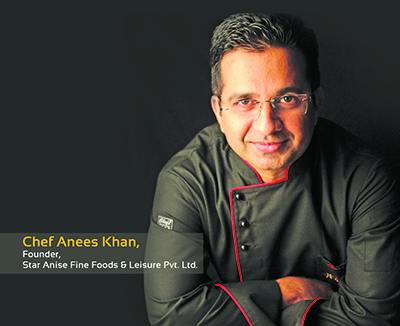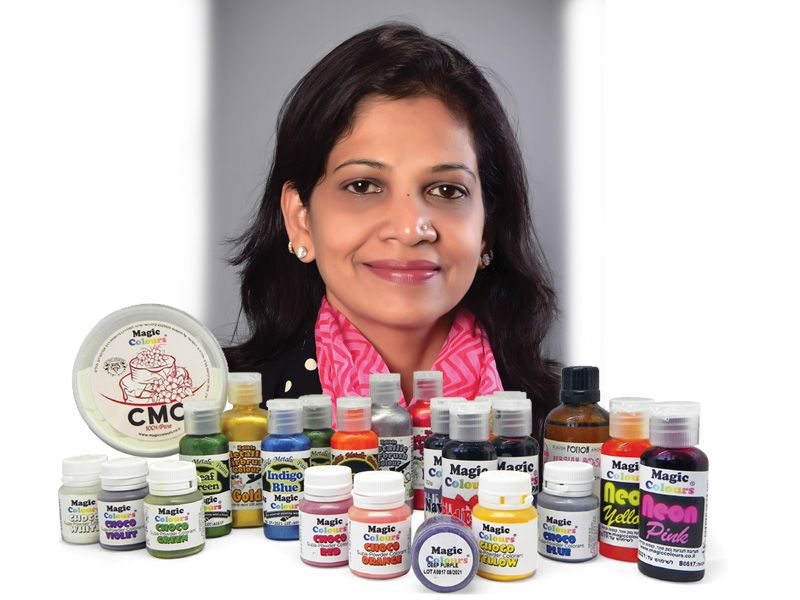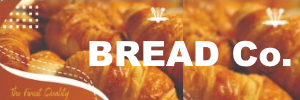An 18-month old artisan bakery is creating ripples for its authentic breads. The bakery is already planning to increase the number of its outlets to 20 from the existing four. A review by Manoj John

When Sneh Jain quit his plum job at McKinsey to become an entrepreneur two and a half years ago, his colleagues asked him what business he wanted to do. Sneh couldn’t answer them because he hadn’t yet decided which industry he will get into!
Today, Sneh along with his wife Aditi Handa and Aditi’s brother Siddharth Handa runs four boutique artisan bakeries in Mumbai. Sneh was in Canada and was impressed with the variety and quality of breads available in the West. “The knowledge that the people abroad have about bread is amazing,” he says. “Their definition of fresh bread is different and fabulous,” adds Aditi.
“We decided to make bread of the same quality and take it to the masses here,” Sneh explains how the idea behind The Baker’s Dozen took place. It has four retail outlets at Prabhadevi, Kemps Corner, Bandra and Oshiwara, “I do not want my bread to go only to the elite homes. That is why we have priced our products low. The density of population in a city like Mumbai will make up for any gap in demand,” he adds.
The Baker’s Dozen is one of those upcoming bakeries that sell fresh bread without using chemicals or preservatives. “We do not use pre-mixes or preservatives. Our bread is 100% natural,” says Sneh. The Baker’s Dozen uses locally available ingredients and makes natively European breads, which is indeed a formidable task. You will get a range of breads from brioche to focaccia and fougasse to banana bread at The Baker’s Dozen. And this was not achieved overnight.
When Aditi, an alumnus of The French Culinary Institute in New York, baked the first bread when they opened their first outlet 18 months ago, it did not turn out to be as savoury as it is today. It was rather a “misadventure” as Aditi would put it. “I followed the same rigid methods that I learnt from world class chefs. But the product did not turn out to be good. Then I asked the chefs who taught me the job why this happened. They said it is because of two factors: the ingredient and the climate in the country,” says Aditi.
It was then a long story of experiments before success came along. “We changed one factor each day and experimented for one month,” she adds. With ingredients sourced from India, The Baker’s Dozen has now achieved the capability to churn out ciabatta and baguette that are difficult on the face to differentiate from the ones you get on the streets of a European town. “At the beginning of our venture, we decided that whatever we produce must be authentic,” says Aditi. She hasn’t compromised on that count. The bakery discontinued the sale of French croissants for a month since it is literally impossible to make a perfect croissant with pure Indian ingredients. The Baker’s Dozen’s policy of selling authentic products has helped attract a large number of regular expatriate customers.
The duo believes in the uniqueness of place and product. “One product is good in a certain place, and another is good in another place,” they say. At The Baker’s Dozen, they have been able to recreate authentic European breads in India. “Just like our Indian food, real bread becomes stale after, say, nine hours. Nobody here teaches the basic intrinsic values of bread,” says Aditi, who felt like a fish out of water on her first four days at The French Culinary Institute. “I could not connect with the world of bakery for a few days. It was on the fifth day that I realised bread is my calling,” she says.

Today, Aditi single handedly manages the kitchen since The Baker’s Dozen, curiously, does not have any other experienced chefs. “We are changing the very perception of bread. We have decided not to hire senior chefs who generally have pre-occupied minds. We recruit only fresh people who are not corrupted by the existing market,” Sneh explains the rationale.
The Baker’s Dozen has just 30 staff altogether. It may look bizarre when you want to create a world class bakery and still not having senior chefs. But that is what sets The Baker’s Dozen apart. And perhaps that is what the secret of its success too.
The Baker’s Dozen does not either have flamboyant kitchens like the live bakeries tend to have nowadays. “We do not have fancy kitchens. We decided to invest rather in equipment. I visited trade fairs abroad to meet equipment makers directly rather than through representatives,” says Sneh.
The bakery has more of deck ovens than rotary ovens. “Deck ovens give the crust. They are used by pizzerias. The capacity of a deck oven is less when compared to a rotary oven. But we still went ahead with deck ovens to achieve the desired result.”
Sneh and Aditi believe it is important to have regular interactions with customers. They organise workshops at their kitchen for their regular customers. “The objective is to educate them about the artisan bread. It is also aimed at allowing them to see the kitchen and removing reservations if any. We have already conducted around eight sessions,” says Sneh.
The Baker’s Dozen also organises sampling for its customers. “We are basically telling the people to switch from their regular vendor to us,” he says. The proprietor duo is planning to start around 20 more outlets in Mumbai. That is quite a razzle-dazzle feat for a bakery that was founded just in 2013 January as a home delivery service covering a small stretch in downtown Mumbai.
Ask the husband-wife honchos of The Baker’s Dozen where they see themselves a decade down the line. “I want to go at the national level in the long run,” Sneh lays out his vision. “I would like to set up a culinary institute and train people to become world class bakery chefs,” Aditi sets out her goal, markedly different from that of her partner.



